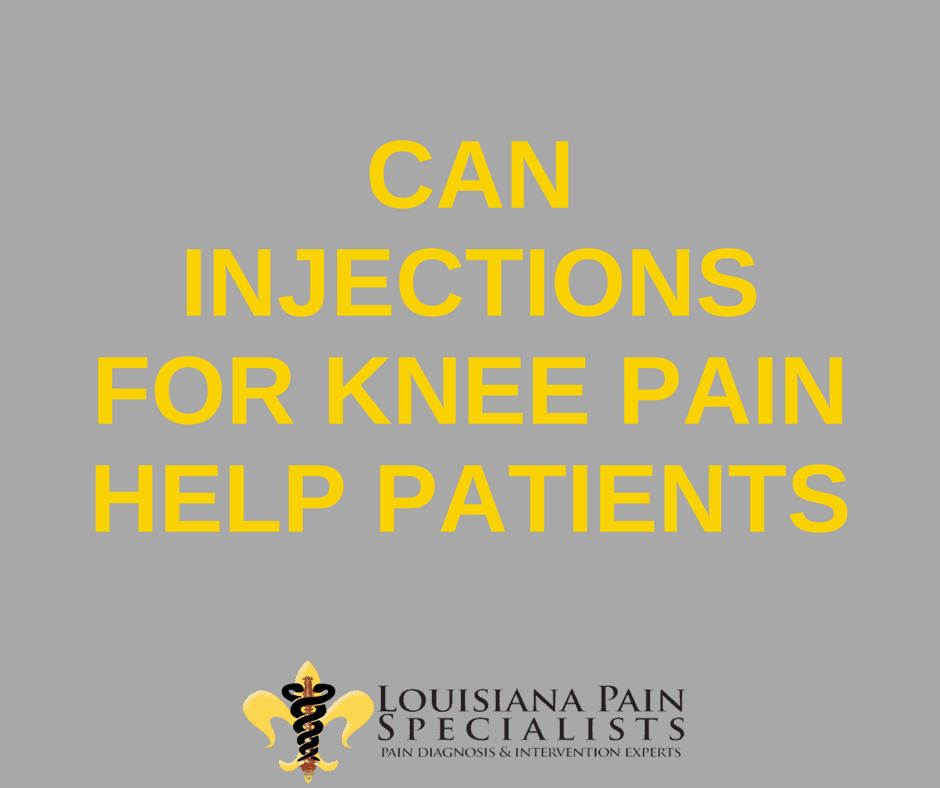
When you have knee pain, doctors will typically try oral medications and other forms of therapy before recommending surgery or other options.
Some options that are beyond oral medication but not as intense as surgery are knee injections.
What kind of knee injections are available?
Here are the three knee injection treatments recommended by the Arthritis Foundation:
- Hyaluronic acid supplements – These are not considered medications, but these substances are injected into knee joints to supplement naturally occurring hyaluronic acid in your joints. People with healthy joints have hyaluronic acid in them that absorb shock and act as a lubricant. This means the joins can move more smoothly. Osteoarthritis patients, however, have less of the substance because the acid breaks down in these patients. These injections are said to decrease pain and inflammation. Typically, patients will get one injection per week for three or five weeks, depending on which type of hyaluronic acid supplement you are receiving. Doctors will remove a small amount of joint fluid before injecting the patient with the supplement.
- Corticosteroid Injections – For quick relief, doctors will sometimes use corticosteroid injections to help with pain and inflammation. These injections are known to relieve pain and discomfort temporarily, though the relief can last between a few days and six months. Even though these types of injections bring quick relief and are without a lot of the side effects that oral corticosteroid injections come with, these injections can still be risky. If you get too many of these injections, it can cause your cartilage to break down. That’s why doctors usually limit the number of corticosteroid injections a patient can receive.
- Arthrocentesis – This type of injection is also known as joint fluid aspiration. Arthrocentesis is when a doctor inserts a hollow needle into the knee joint and removes joint fluid from the knee. These are usually done so that the fluid can be sent to a lab for testing, but when doctors remove fluid it typically lessens pain and inflammation for the patient. After doctors remove the fluid, they will often use the same spot where they injected a needle to remove fluid, then inject a corticosteroid and/or an anesthetic. Both of those add to the immediate relief of knee and joint pain or inflammation.
Researchers at Tufts Medical Center studied various knee pain treatments and concluded that corticosteroid and hyaluronic acid injections were the most effective treatments that brought the most pain relief to patients.
Are you or someone you love having problems with knee pain? Contact Louisiana Pain Specialists today for help.
